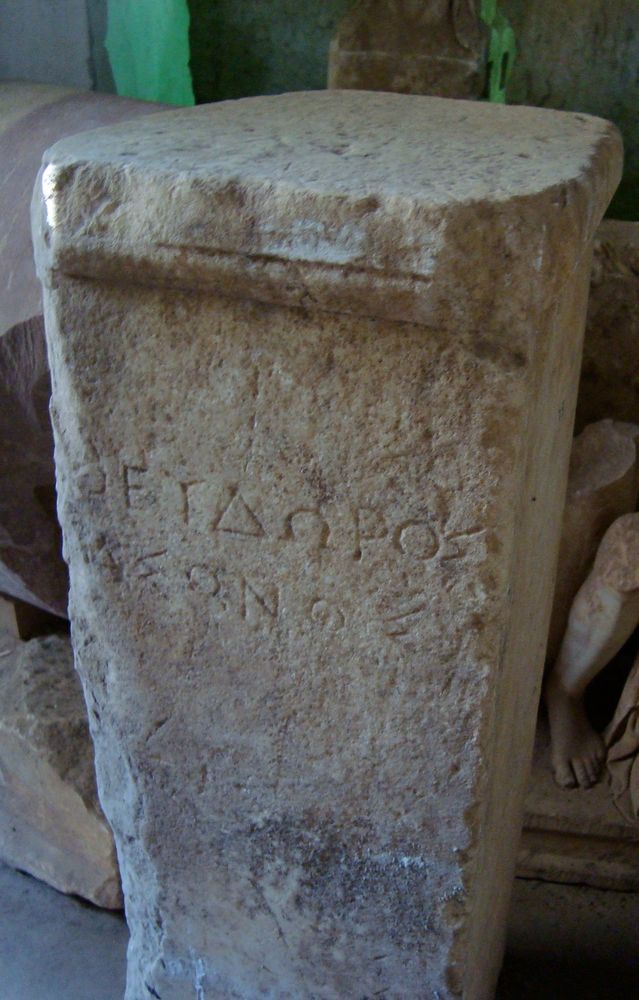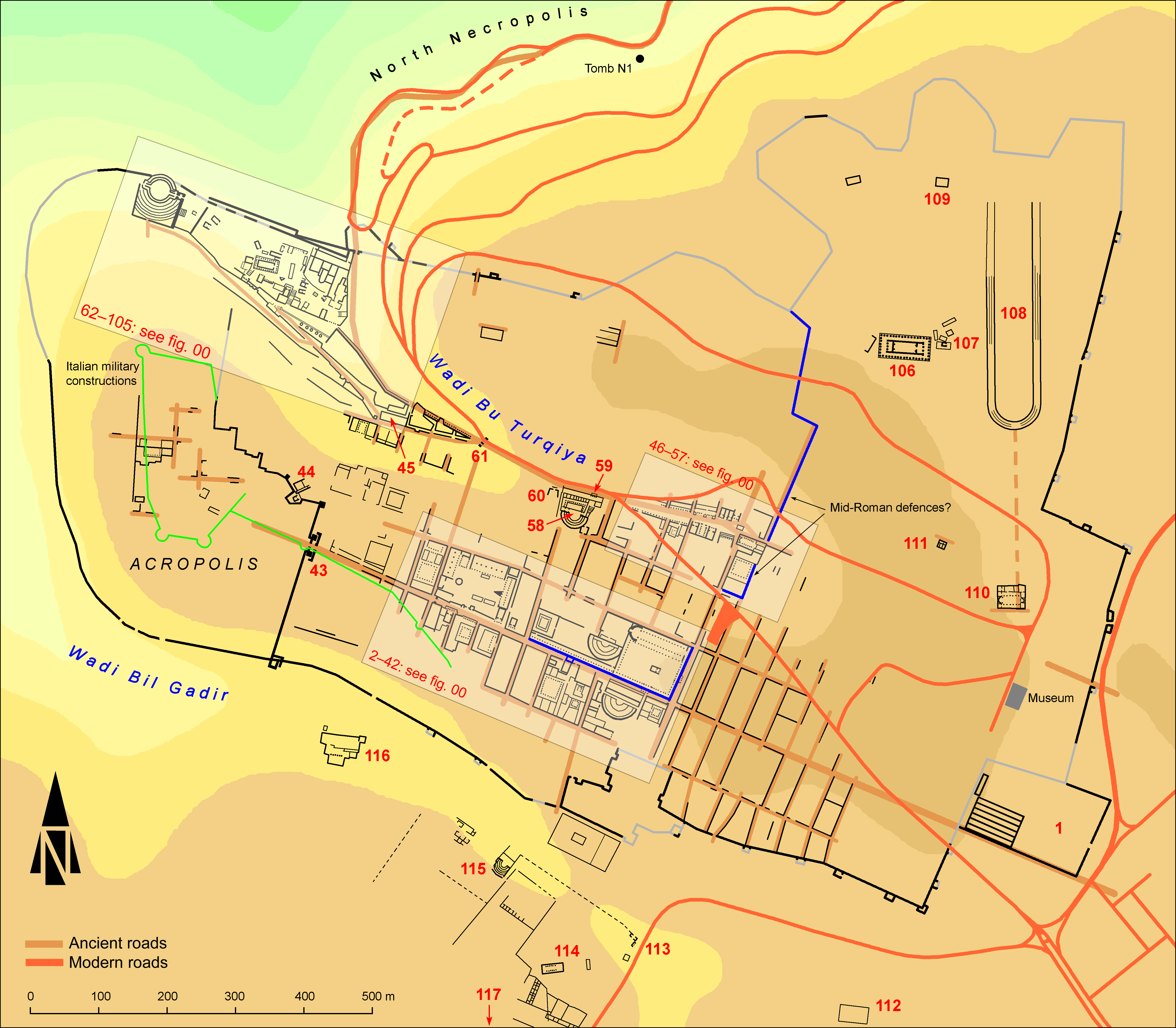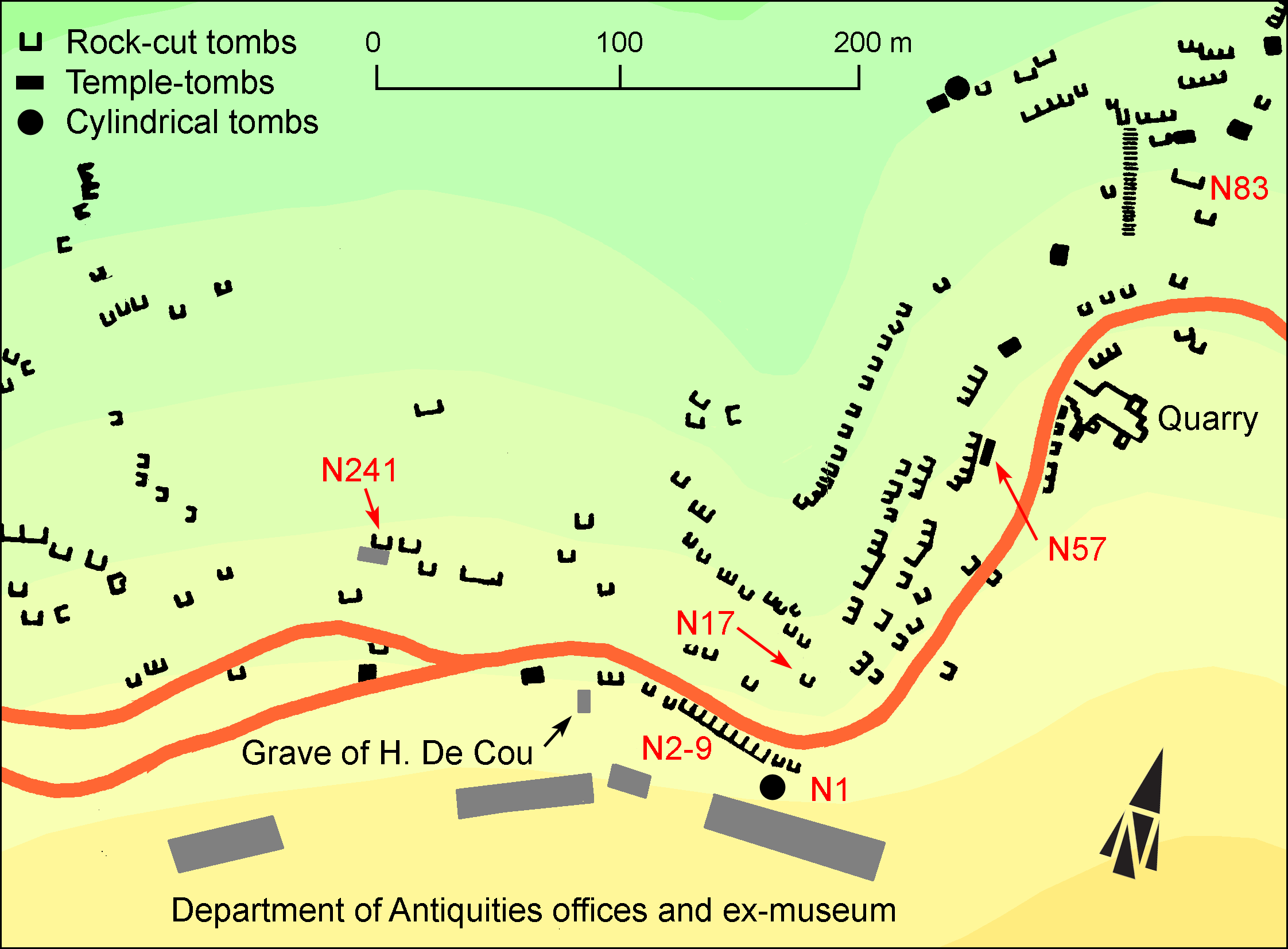EpiDoc XML:
IGCyr0245002
Trismegistos ID:
105906
Source description
Support: Whitemarble stele, slightly tapering, with plain moulded cornice on top, of which the right angle is broken off (with moulding w: 0.29 to 0.30 × h: 0.92 × d: 0.28).
Layout: Inscription begins at 0.10 m below moulding (w: 0.265 to 0.30 × h: 0.86 × d: 0.26 to 0.29).
Letters: 0.028.
Date: Between 325 and 275 BC (lettering).
Findspot: Found by H.F. De Cou (Mission Norton) in 1911 at Cyrene ➚: from the house of Turkish Mudir, in the North Necropolis, perhaps from tomb N241 (Thorn).
Place of origin: Cyrene ➚, probably North Necropolis.
Last recorded location: Cyrene Museum, 609. Seen by C. Dobias-Lalou in 1997 in Shahat: Cyrene Museum.
Text constituted from: Transcription from stone (CDL).
Bibliography
Robinson 1913, pp. 171-172, n. 36; Oliverio 1933-1936, p. 112, n. 89, fig. 45, whence SEG, 9.201; IGCyr 024500 ➚. Cf. Sammelbuch 5884; DGE 231,4; Applebaum 1954, pp. 41-54, whence SEG, 17.812; Lüderitz – Reynolds 1983, n. 15, whence SEG, 33.1369; Thorn – Thorn 2009, p. 92.
Text
French translation
Theudôros fils de Iasôn.
English translation
Theudoros son of Iason.
Italian translation
Theudoros figlio di Iason.
Commentary
As the stele was seen by De Cou in 'the house of the Mudir', it might come from the vicinity. The Thorns thus proposed to assign it to Tomb N241.
Applebaum considers this man a Jew, whereas Lüderitz is much more cautious about the question. It should at least be remembered that both names belong to stems that were very popular in Cyrenaean onomastics well before the arrival of Jews in the region. The question should thus remain open.
CC BY-NC-SA 4.0 Deed Attribution-NonCommercial-ShareAlike 4.0 International License.
All citation, reuse or distribution of this work must contain a link back to DOI: https://doi.org/10.60760/unibo/igcyrgvcyr2 and the filename (IGCyr000000 or GVCyr000), as well as the year of consultation.


